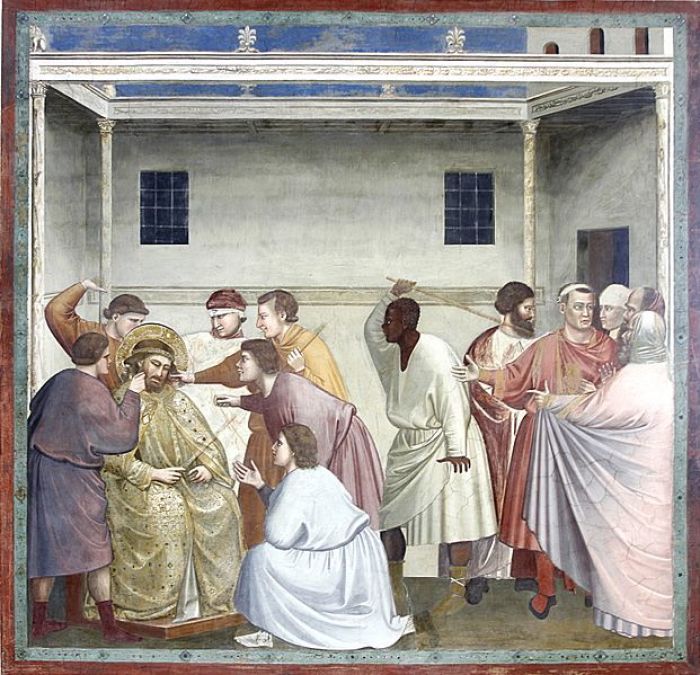Good Friday: What Was Jesus Charged With That Got Him Crucified?

As hundreds of millions of Christians around the world remember the crucifixion of Jesus on Good Friday, a group of scholars analyzed what Jesus was charged with.
In an episode of "The Table Podcast" from earlier this week, professors at Dallas Theological Seminary noted that the charges against Jesus were both religious and political, namely blasphemy and treason.
Darrell Bock, executive director of Cultural Engagement and senior research professor of New Testament Studies, explained on the podcast that the first charges against Jesus were religious in nature, specifically the charge of blasphemy.
Bock touched upon a verse from an apocryphal ancient document known as First Enoch, which reads, "the high officials shall see how he sits on the throne of his glory and they'll be terrified, the pain will cease them and they will see the Son of Man sitting on a throne of glory."

Bock explained to those listening to the podcast that while the Enoch passage was not divinely inspired, it provides a good look into how Ancient Jews viewed the Messiah.
And thus, noted Bock, when in Matthew 26 a priest tears his robe in response to Jesus identifying himself as the "Son of Man sitting at the right hand of the Mighty One and coming on the clouds of heaven," he does so because "he's understanding what it is that Jesus is claiming."
"Now he doesn't believe it, so he tears his robes, but he understands the claim. If Jesus is not who he claims to be, then what he's uttered is blasphemy," noted Bock.
"But if he is who he claims to be, then he's proclaiming that God is going to exalt him and one day, he's going to be their judge."
In addition to the blasphemy charge from the Jewish leadership, the scholars on the podcast explained that a political charge was also included so that Jesus could be executed.
Mark L. Bailey, senior professor of Bible Exposition, explained that the Jewish authorities had to come up with a political charge (sedition) so as to get the Romans to execute Jesus.
"The Jews were not allowed to put somebody to death, even though the Herodians and the Pharisees had taken council earlier in his life [on] how they could get rid of him," explained Bailey, adding, "I think it's the combination of those two that escalates it from the Jewish leadership to the Roman authorities."
"In fact, Pilate will play with the Jews a little bit, 'here's your king. King of the Jews. Now he's not big enough to trump Rome, but he's your king, isn't he?' And he's going to play with that very idea but that is the linkage."
Bock added that the expedience of the trial was due to the Jewish leaders' need to quickly get rid of Jesus and contributed to what Bock described as "a buffer in what happens to Jesus."
Bock described this "buffer" for the Jewish authorities as being that it was a follower of Jesus, Judas Iscariot, who betrayed him, and a Roman official, Pontius Pilate, who put him to death.
"So if you came to the Jewish leadership and said 'you're responsible for Jesus' death,' they would go 'wait a minute, slow down, okay, alright? One of his own turned him in and Rome made the call,'" said Bock.
"So they've got insulation on both ends in terms of the events. Now this has to happen of course because only Rome can crucify somebody, so they had to translate the religious into a political charge."




























